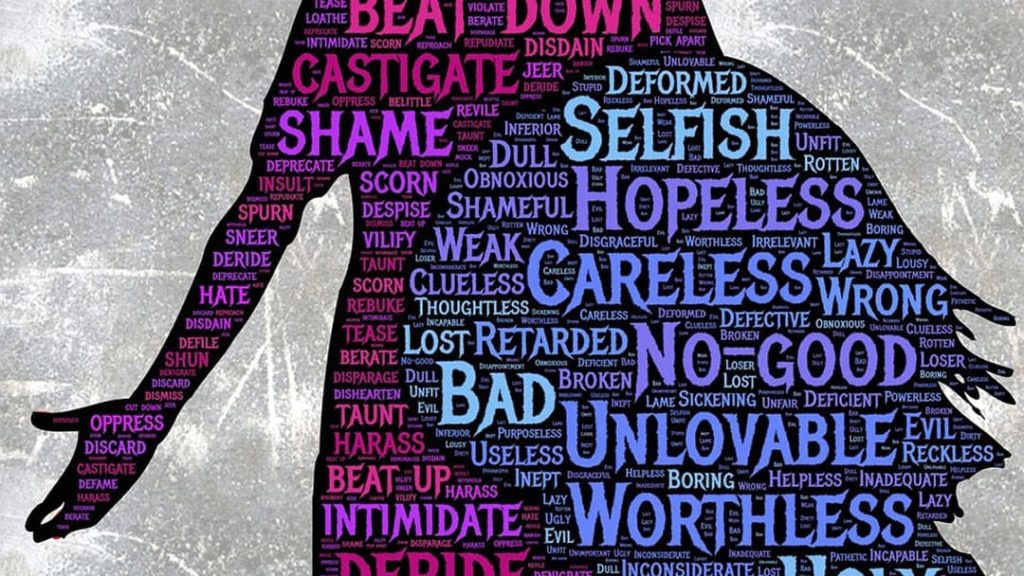Last Updated on April 11, 2022 by Ray
No one should have to live in an abusive relationship. Unfortunately, narcissistic people can be difficult to identify, and living with a narcissistic individual can lead to a condition known as narcissistic victim syndrome, in which the victim’s mental health and self-confidence are adversely affected.
We’ll cover what narcissistic victim syndrome is, the warning signs, and how to get help.
What Is Narcissistic Abuse?
Narcissistic abuse is a type of emotional abuse that comes from someone suffering from narcissism. They have a tendency (whether conscious or not) to use manipulative actions to alter or control their partner’s behavior.
While narcissistic abuse tends to fall under emotional manipulation and thought control, there are various ways that narcissists go about doing so. Manipulative techniques like gaslighting are commonly used by narcissists to disorient and confuse their partners so that they are more susceptible to their demands.
What Is Narcissistic Victim Syndrome?
Narcissistic victim syndrome occurs when someone has lived with or spent a significant amount of time with a person classified as a narcissist. People struggling with this syndrome often have doubts about their sanity and self-worth and have concerns about their failures, flaws, and perceived shortcomings. In many cases, these ideas get planted in their minds by a narcissistic partner, family member, or friend.
Those struggling with narcissistic victim syndrome typically have a challenging time identifying with reality. They may start to question what’s really happening since their minds get confused and distorted from the content manipulation and emotional abuse.
There are many symptoms that someone struggling with narcissistic victim syndrome might have, and some of them mimic symptoms of PTSD. Let’s look at some of the most common signs of narcissistic abuse.
Warning Signs of Narcissistic Victim Syndrome
While many of the signs (we’ll cover these in a moment) may be easy to spot for someone who has been a victim of a narcissist, it can be extremely difficult for others to notice. People experiencing narcissistic victim syndrome often feel insecure, delusional, or ashamed and are unable to understand that they aren’t the problem.
Narcissistic abuse is also often seen in codependent relationships where the narcissist creates a relationship in which their partner is dependent on them. What’s not talked about frequently is that the narcissist is typically as dependent on the other person; they require a partner as an outlet for their abuse.
Here are ten signs of narcissistic victim syndrome to watch out for:
1. False Perfection
While narcissistic abuse can look different depending on the relationship, it tends to follow a similar pattern. In romantic relationships, narcissistic abuse usually starts slowly, after you fell hard and fast for someone.
During the relationship’s early stages, victims of this abuse typically fall for the abuser because they seem kind, generous, and loving. They probably made you feel special and bombarded you with affectionate displays, compliments, and gifts. It’s usually overwhelming and intense, and the narcissistic abuse victim doesn’t usually consider that things might be too great. With time, manipulative tactics begin to replace the gifts, compliments, and signs of love.
In the case of narcissistic parents or family members, they usually offer adoration, love, and support until you do something that displeases them and you lose their favor. They often use the same manipulative tactics that an abuser in a romantic relationship does.
2. Feelings of Isolation
Many times, narcissistic abuse victims don’t get the support they need from other loved ones. They might not listen to you, which can leave you feeling isolated and even more vulnerable to manipulation tactics. At this point, the abuser will often pull you back in with apologies and kindness, or they might pretend that the abuse never even happened. This tactic works the best when the victim lacks a support system because they are more likely to doubt their perceptions of the abuse when they can’t talk to someone about it.
Sometimes, the victim’s loved ones will tell them they’ve made a mistake and encourage them to give their abusive partner another chance. Oftentimes, they will end up doing so simply for a chance to regain their connection with their family and friends, which can lead to worse issues down the road.
3. The Freeze Response
Everyone responds to abuse in different ways, but the freeze response is a common sign in people with narcissistic victim syndrome. It happens when they feel helpless and involves dissociation, where the victim emotionally distances themselves to decrease the pain and distress they are experiencing.
While the freeze response can be beneficial in some situations, it does more harm when you would otherwise have the ability to escape from the danger. Narcissistic abuse victims have the tendency to believe that there’s no way out of the relationship and might remain in it rather than seeking support to leave safely (we’ll discuss getting help leaving an abusive relationship further down).
4. Doubting the Abuse
Narcissistic abuse is subtle. Even when it happens in public, it can be a challenge to recognize what you hear or see as abuse. Many victims of narcissistic abuse may not even realize what’s happening; they just know they feel upset, confused, or guilty for their “mistakes.”
The abuser may make ill-intentioned “jokes” in a way that encourages everyone else around to join in the laughter to make it seem harmless and well-intentioned. Many friends and loved ones of narcissistic abuse victims don’t see the signs as actual abuse, and you might hear them say things like “you misunderstood them” or “they wouldn’t intentionally hurt you.”
This doubt can be just as harmful as the abuse itself. Not only does it harm your relationship with those loved ones, but it can lead to you questioning yourself about if the abuse did take place after all.
5. Smear Campaigning
Often, people with narcissistic traits feel the need to maintain an image of perfection to keep earning other’s admiration. To achieve this, they might try to make you look bad. When you question their behaviors or point out problems, they might lash out and insult or threaten you, or they might get others involved in criticizing you.
They might tell your loved ones stories and twist the facts to make your behavior look unstable or harmful in an attempt to discredit you. Then, if you react angrily, they’ll use your angry response to back up their lies.
Narcissistic abusers often have the ability to charm others. Remember that persona we mentioned in number one? That’s what everyone else still sees. They often get support from your friends and family who haven’t seen through their facade by insisting that your best interests are their concern. That’s why, when trying to explain the abuse, they might side with your abuser.

6. Decision-Making Troubles
The criticism narcissistic abuse victims constantly face can leave them with very little confidence and self-esteem. The abusers often make implications that your decisions are bad and you can’t do anything right. Abusive partners might put you down outright or make insults with a false, affectionate tone mixed with sarcasm.
Over time, you might absorb the insults and attach them to your perception of yourself, which can lead to constant second-guessing. Gaslighting tactics can also bring doubt to your decision-making abilities. When someone manipulates you to believe you’re imagining things, it’s easy to continue doubting your perception of various events, and this uncertainty can affect your decision-making abilities well into the future.
7. Self-Identity Adjustments
When facing abuse, you might not even recognize yourself. Many victims end up adjusting their self-identity to fit in with their abusive partner. Abusers use this to isolate their victims from friends and family, telling them things like, “you’d rather see them instead of me; you don’t love me.” Then, the victim will eventually stop visiting other people to prove their love to the abuser.
From there, it spirals into skipping after-work drinks with a co-worker, giving up your hobbies, canceling regular family visits, etc. The victim ends up spending all of their time doing what the abuser wants to and loses their self-identity in the process. These changes can lead to losing your sense of self, leaving you feeling empty and lost. People with narcissistic abuse syndrome typically eventually lose their sense of purpose and have a difficult time enjoying anything.
8. Setting Boundaries
Narcissistic abusers often have little or no respect for your personal boundaries. When trying to set and enforce limits, they’ll challenge them, ignore them, or ignore you until you act how they want you to. Eventually, victims usually give up on their boundaries entirely. Once ending the relationship or getting distance from a narcissistic family member or friend, you’ll promise yourself that you won’t see them or answer their messages.
But, if the abuser thinks they can wear you down eventually, they might not give up so easily. Instead, they’ll continue to call and text in hopes of you seeing aside those boundaries again. People with narcissistic victim syndrome often have trouble setting up healthy boundaries in any of their relationships.
9. Anxiety, Depression, and Other Mental Health Symptoms
Anxiety and depression are common developments that result from narcissistic abuse. The stress the victims face can trigger feelings of fear, worry, and nervousness, especially when they don’t know what to expect from the abuser’s behavior. They might feel worthless or hopeless and lose interest in activities they used to enjoy. They also might struggle to see any hopeful outcomes for the future.
It’s also common for the victim’s friends and family to have confusion about the abrupt changes, especially when they aren’t aware of the narcissistic abuse that’s happening.
One of the biggest mental health symptoms of narcissistic victim syndrome is feeling like you’re always doing something wrong. Narcissists have difficulty taking responsibility for harmful behavior or negative actions. They typically find a way to blame the abuse victim. Oftentimes, this ends up with them being aggressive and angry, which can leave the victim feeling dependent and helpless.
Even once they’re out of the abusive relationship, the belief that they can’t do anything right might remain for years afterward. It can be a challenge for victims of narcissistic abuse to accept that they aren’t the cause of every problem.
10. Restlessness and Other Physical Symptoms
Narcissistic abusers are unpredictable. Their victims don’t know what’s going to happen next; will you get criticized or surprised with a gift? Not knowing what will happen or what someone will say can end up with the victim developing tension from the need to constantly prepare for conflict. It can leave them constantly on edge and unable to let their guard down.
Narcissistic abuse can also trigger feelings that lead to physical symptoms, including:
- Appetite changes
- Stomach pain or gastrointestinal issues
- Insomnia
- Nausea and upset stomach
- Muscle aches and pains
- Fatigue
Why Do Narcissists Always Play the Victim?
To put it simply, narcissists are extremely arrogant. They usually have a grandiose sense of self and cannot look beyond themselves. However, this self-esteem they seem to have in droves isn’t authentic. Because of this, their self-pity and ability to “play the victim” will often substitute their authentic self-worth.
Essentially, a narcissist plays the role of a victim because it makes them the misunderstood and mistreated hero in their own story, which is all about them. It focuses on the narrative that their needs are the most important because they have not been met in the past or because they were wronged in some way in the past.
In some way, a narcissist believes the role they play. That is because it plays into the belief that they deserve all the respect and attention in your relationship.
The narcissist is so good at their role that you may even find that you are taking their side. You begin to feel guilty and like your actions have wronged them. Unfortunately, this only fuels their role as the victim further. You may even provide more positive affirmations or agree to things you wouldn’t typically do. This is all part of the abuse cycle that narcissists are so good at creating to control situations and maintain their false sense of self-worth.
When it comes to how a narcissist thinks, it’s all based on extremes. Because of this, there are no situations when they won’t be the victim until you find a way to break free from their vicious cycle.
How to Get Help

Any kind of abuse, narcissistic or otherwise, can take a significant toll on the victim’s physical and emotional health. Especially if your loved ones doubt the abuse, you may feel unsupported and unheard, making it difficult to trust anyone again. Whether you’re currently experiencing narcissistic victim syndrome or you’re trying to make sense of a past relationship, a life coach can help you start to heal.
Working with a life coach offer numerous benefits for victims of abuse, including:
- Learn coping strategies to manage your mental health symptoms
- Practice setting boundaries in relationships
- Explore how to rebuild your sense of self
It’s important to seek help if you or someone you care about is struggling with narcissistic victim syndrome. Not only should you make an effort to get the narcissist out of the picture, but you should also seek treatment for your symptoms.
Are you looking for a life coach to help you get through the tough times? Get in touch with Ray of Solace and get the support that you need.
Related: Life Coaches Benefits and FAQs

Please help I just want this nightmare to end. I was used and manipulated for years for some twisted narcissistic’s growth then labeled an abuser while she ghosted and tortured me for months.. they are mentally I’ll users with no shame or real emotions. Pathological liars who believe their own sick victim stories za they’re the worst most psychologically damaging sick Fs on the planet
Sometimes u can’t leave its not possible, I mean sometimes ignoring them or just not telling them anything is good.
U can’t go to a therapist as 1. U don’t trust the therapist & 2. They hold the pursestrings.